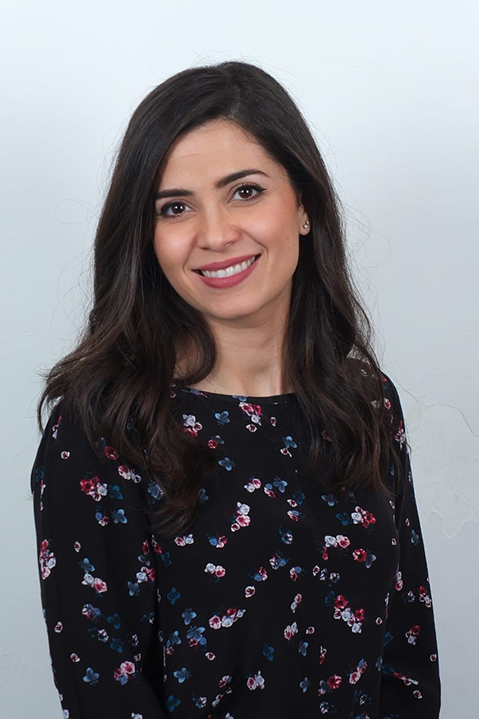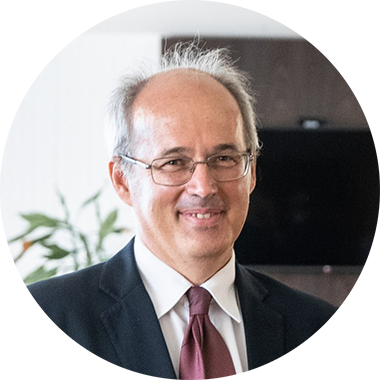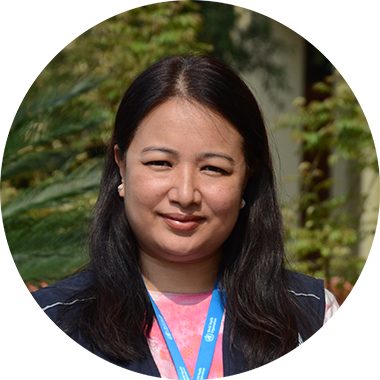
Edwina Zoghbi
Technical Officer, Noncommunicable Diseases and
Mental Health - Lebanon Country Office

Edwina Zoghbi has been working with WHO Lebanon since 2013 as a Technical Officer for non-communicable diseases and mental health. Her work involves coordinating with partners and health stakeholders to support the government, specifically the Ministry of Public Health, to implement initiatives. They collaborate to devise health strategies and run programmes to improve health outcomes. More recently, she has also been involved in securing funding for emergency relief. “I love the areas of work I am involved in,” she says, “especially recently when I started implementing a project to improve health and mental health in Lebanon’s largest central prison.” The work inspires her and she says she is committed to the implementation of WHO’s programmes on public health and noncommunicable diseases prevention and control.
Edwina always wanted to be in the public health field. When she was around 11 years of age, she talked with her best friend about what they wanted to become when they grew up and they decided to be doctors or nurses or dancers. She was always more interested in biology and science, so she decided to study nutrition at university. “One of my close friends suffers from a mental disorder and even attempted to end her life at one point," she recalls. “It was difficult for me to know how to help or how to find community support for her and this was my personal motivation for completing a major in psychology.” When she graduated, she worked as an enumerator in a health survey to study the risk factors of noncommunicable diseases such as diet and physical activity. It was a household survey and she had the opportunity to travel throughout Lebanon. She went into the poorest neighbourhoods and could see the living conditions and the suffering. “This motivated me to study public health and contribute to addressing health inequalities,” she says. “Working for WHO became my ultimate goal.”
Combining her interests with her passions has served and helped her to stay motivated through the hard times in Lebanon. Edwina always tries to find opportunities, even in the darkest situations, and she thinks of herself as solution oriented and eager to learn. This drive, along with learning new concepts and skills, has helped her to grow in her current job.
She recalls talking with a close friend on video chat during the COVID-19 pandemic and lockdown. Her friend had been dealing with an anxiety disorder and Edwina was happy to learn that he was coping well and taking care of himself by enrolling in a mental health mobile application that she had contributed to. He had even started practicing relaxation and grounding exercises regularly, among other activities. Similarly, when she thinks about trying to understand and alleviate her friend’s suffering from before her university studies, she becomes motivated by the progress that’s been made since then towards community-based mental health services. “We need services that are centred on the person's goals and preferences; services that align with human rights and where the person feels empowered," she says. “This is the essence of my work at WHO.”
Several emergencies have affected Lebanon recently, starting with the economic crisis and degrading financial situation, the COVID-19 pandemic and then the Beirut Port Explosions. Edwina notes that working with WHO during these crises has been difficult but rewarding. The nature of her work shifted to emergency relief and helping in resource mobilization to ensure timely responses to the emergencies. WHO’s work, specifically in the area of mental health in emergencies, is key to ensuring that quality care is provided to people in a dignified manner.
Championing diversity can lead to new perspectives, more innovation and ultimately to meeting our broader goals.
By helping the government to build better health care systems and securing emergency relief funding, Edwina contributes to WHO’s mission of health care for all. Her work complements the office's mandate to improve the overall health in Lebanon. “I’m not a doctor, nor a front-line worker,” she says, “but it gives me satisfaction to know that I am contributing to improving the health of the population and serving some of the most vulnerable.”
Edwina notes that diversity in our workforce will allow WHO to better advocate for inclusion and the rights of minority groups, which are among the most vulnerable. Championing diversity can lead to new perspectives, more innovation and ultimately to meeting our broader goals.


